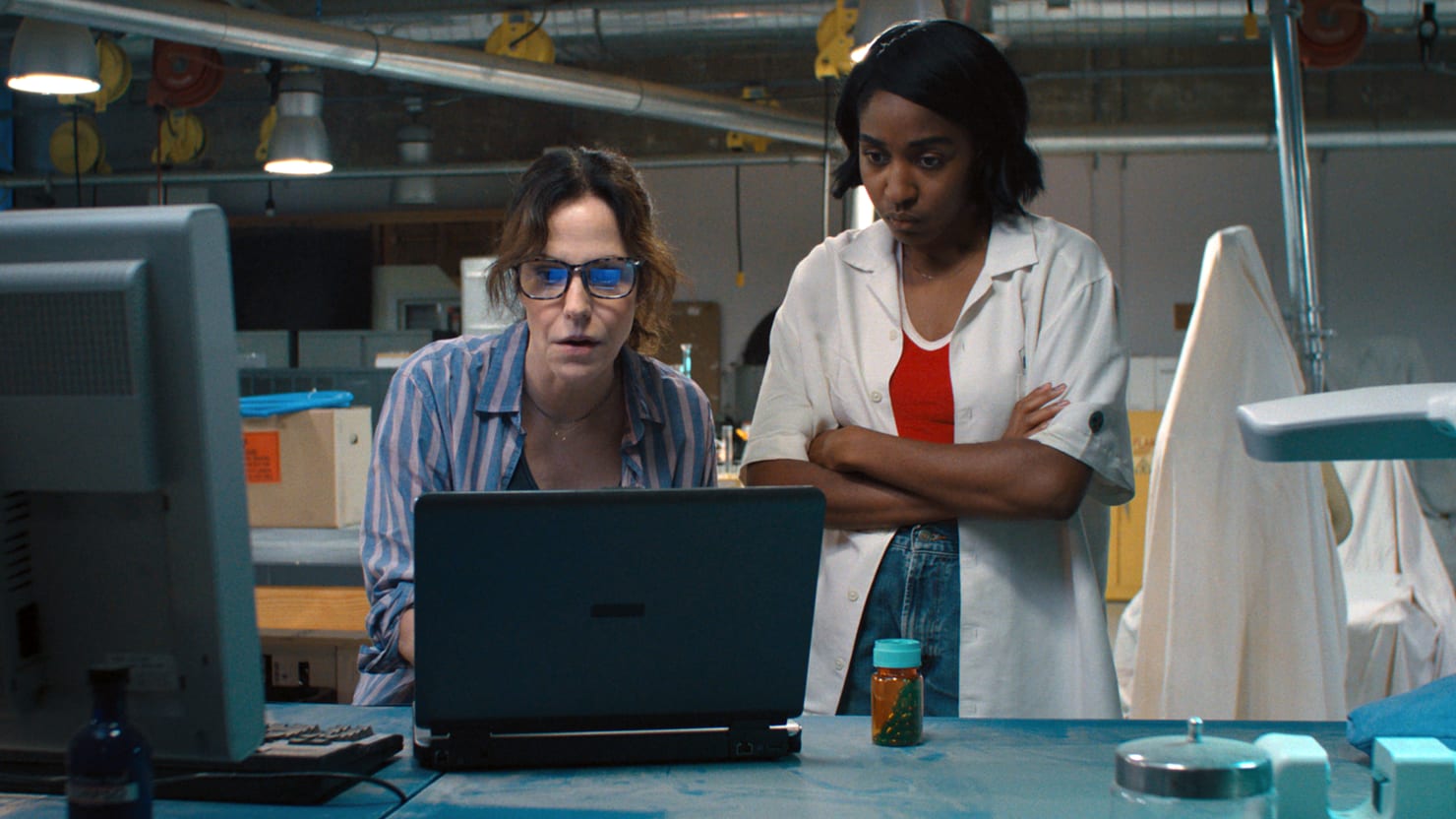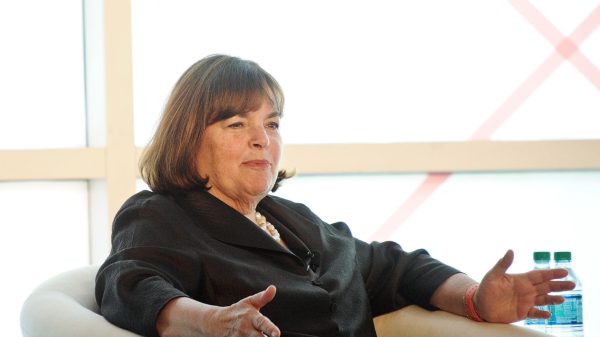
Since Groundhog Day reinvented the genre, time-loop movies have been a way to tell a high-stakes story in a low-stakes way (the exception being Edge of Tomorrow, every aspect of which is high-stakes). In everything from Run Lola Run to Happy Death Day to Palm Springs, the main characters are forced to relive the same experiences, allowed to come back and do it all over again as soon as the loop runs out. Some of these movies take the heady route, attempting to explain the mechanics of how one becomes caught in a knot of time, and how they might escape.
Brazilian director Bernardo Britto’s second feature Omni Loop, out Sept. 20, on its surface, seems like one of these theory-heavy films, centered as it is on two experimental physicists. But as the characters move through their preordained paths, the film proves it’s about much more than that.
Zoya Lowe (Mary-Louise Parker) awakens in a hospital bed, her doctors and family members gathered by her side to tell her she has a black hole growing in the middle of her chest, and maybe a week to live. Zoya has, in fact, lived this moment, and the next few days after it, an innumerable amount of times already, and is doomed to do it forever unless she figures out a way to escape, possibly even curing herself in the process. When she bumps into Paula (Ayo Edebiri), a student at the physics department of a university Zoya attended, the two hatch a plan (that Zoya has to endlessly repeat) to figure out what’s causing Zoya’s predicament and what she can do to stop it.











